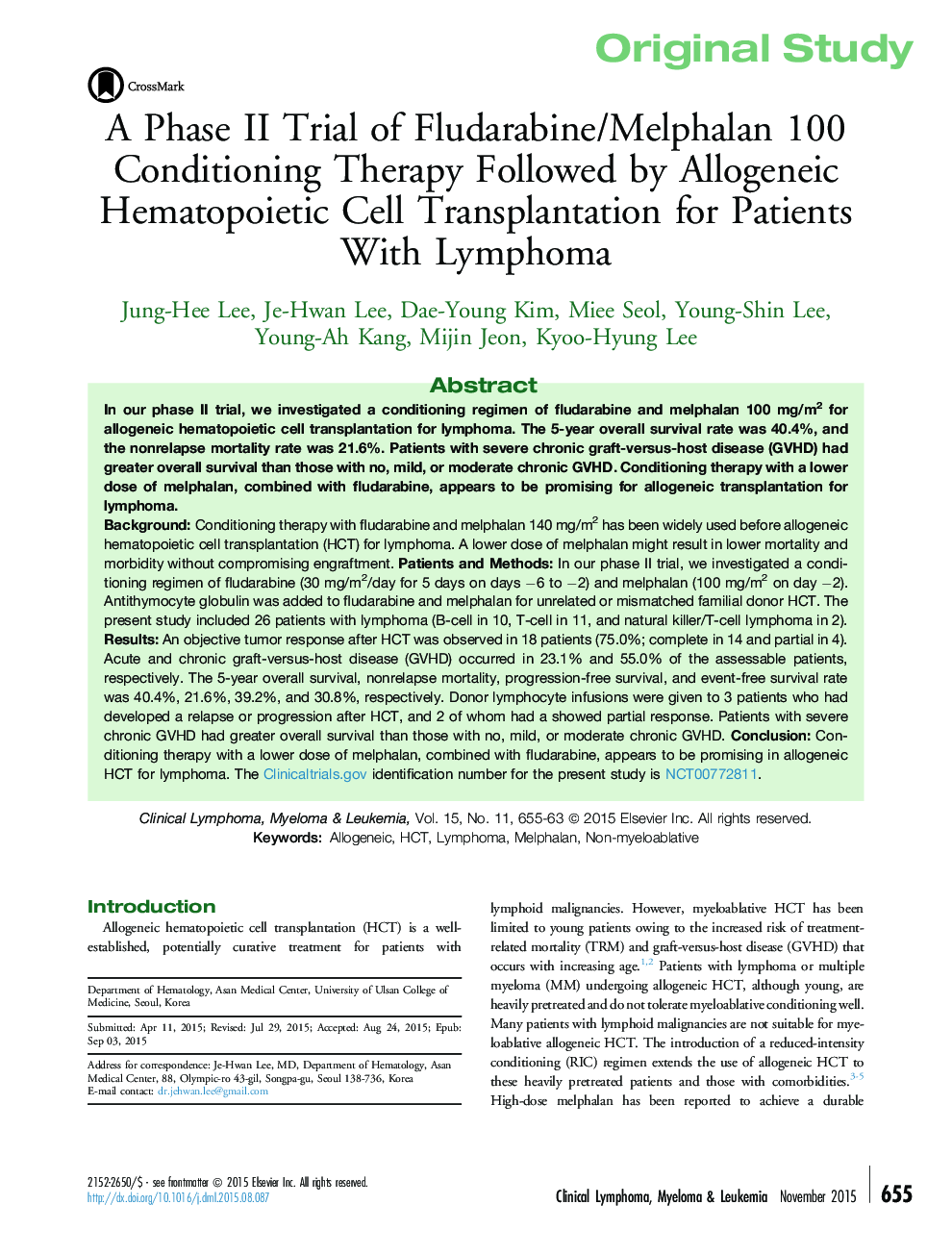| کد مقاله | کد نشریه | سال انتشار | مقاله انگلیسی | نسخه تمام متن |
|---|---|---|---|---|
| 2754363 | 1149778 | 2015 | 9 صفحه PDF | دانلود رایگان |
BackgroundConditioning therapy with fludarabine and melphalan 140 mg/m2 has been widely used before allogeneic hematopoietic cell transplantation (HCT) for lymphoma. A lower dose of melphalan might result in lower mortality and morbidity without compromising engraftment.Patients and MethodsIn our phase II trial, we investigated a conditioning regimen of fludarabine (30 mg/m2/day for 5 days on days −6 to −2) and melphalan (100 mg/m2 on day −2). Antithymocyte globulin was added to fludarabine and melphalan for unrelated or mismatched familial donor HCT. The present study included 26 patients with lymphoma (B-cell in 10, T-cell in 11, and natural killer/T-cell lymphoma in 2).ResultsAn objective tumor response after HCT was observed in 18 patients (75.0%; complete in 14 and partial in 4). Acute and chronic graft-versus-host disease (GVHD) occurred in 23.1% and 55.0% of the assessable patients, respectively. The 5-year overall survival, nonrelapse mortality, progression-free survival, and event-free survival rate was 40.4%, 21.6%, 39.2%, and 30.8%, respectively. Donor lymphocyte infusions were given to 3 patients who had developed a relapse or progression after HCT, and 2 of whom had a showed partial response. Patients with severe chronic GVHD had greater overall survival than those with no, mild, or moderate chronic GVHD.ConclusionConditioning therapy with a lower dose of melphalan, combined with fludarabine, appears to be promising in allogeneic HCT for lymphoma. The Clinicaltrials.gov identification number for the present study is NCT00772811.
Figure optionsDownload as PowerPoint slide
Journal: Clinical Lymphoma Myeloma and Leukemia - Volume 15, Issue 11, November 2015, Pages 655–663
